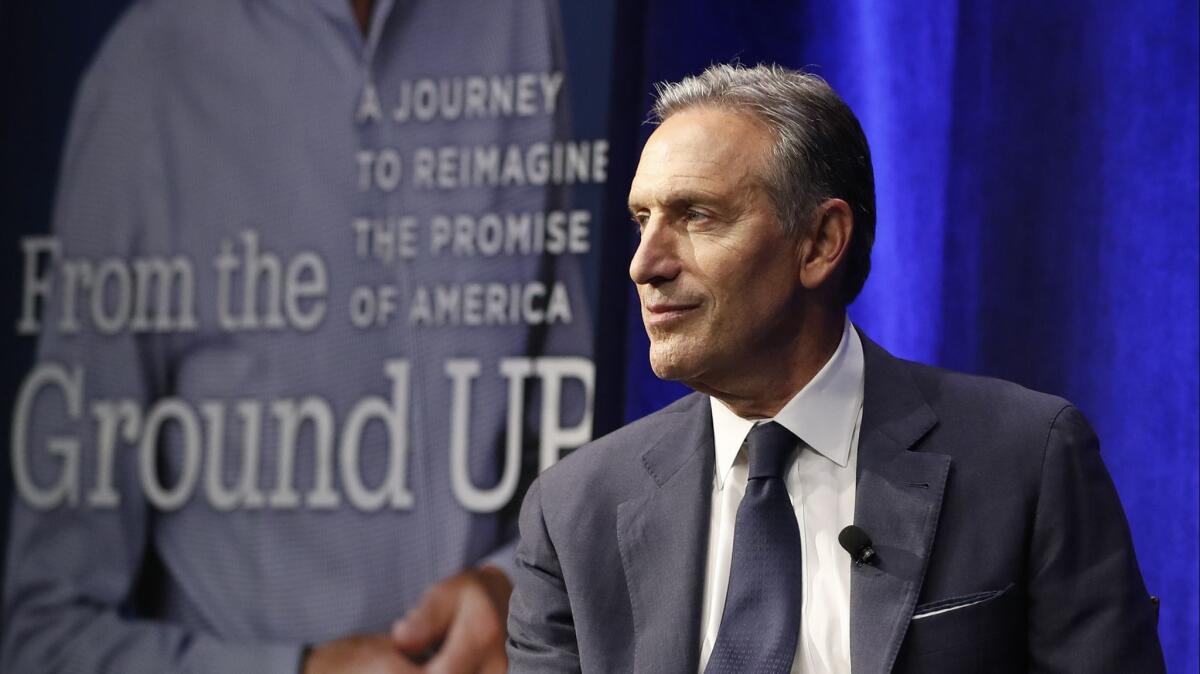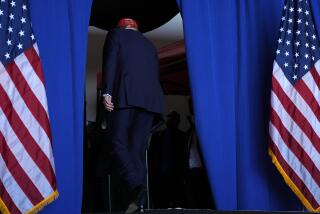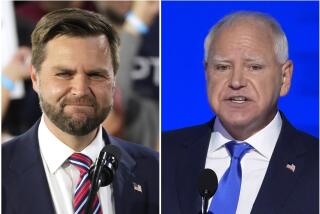Could Howard Schultz ruin 2020 for the Democrats? Sure, but that’s democracy

It didn’t take long after former Starbucks CEO Howard Schultz announced his possible run for the presidency as an independent for the verbal bombs to start falling — from the left. Fellow billionaire and erstwhile independent Michael Bloomberg channeled many Democrats when he tweeted this:
In other words, Schultz shouldn’t run because not only can’t he win, he would only hurt President Trump’s Democratic opponent, whoever that might be.
Bloomberg may be right — more on that later — but the message he and like-minded Democrats are sending is profoundly depressing. They’re saying that giving voters more choices leads to bad outcomes.
Think about that for a moment.
I have supported my share of third-party candidates over the years, in every case because I thought the major parties had failed me. That’s the point Bloomberg seems to miss here. If Democrats put up a compelling and broadly appealing candidate, independent candidates like Schultz are more likely to draw support away from Trump. You can’t know what will happen until you see who all the players are.
Trump’s loyal base represents up to 20% of the voting public, according to a couple of interesting analyses. The support from the overwhelming majority of his party, though, is largely due to the things his administration has delivered that they like (tax cuts, less regulation) and in spite of the things they don’t (tariffs, family separations at the border, chaos in government). Could an appealing, centrist independent take some of those voters from Trump? Why not?
Enter the Fray: First takes on the news of the minute »
Beyond that, every time we’ve seen a well-funded third-party candidate in a presidential race, the winner has been the candidate from the party not in control of the White House. John Anderson in 1980, Ross Perot in 1988, Ralph Nader in 2000, Jill Stein in 2016 — the pattern is clear. And both Jimmy Carter in 1980 and George H. W. Bush in 1992 were damaged incumbents, albeit without Trump’s cult-like base.
It’s curious that Schultz isn’t trying to win the Democratic nomination as an independent, given that Trump essentially airdropped into the GOP and hijacked the party in 2016, and Bernie Sanders almost did the same in the Democratic Party. Fealty to party orthodoxy hardly seems like a prerequisite to winning a major party nomination these days.
But having a major party’s nomination is surely a prerequisite to winning the presidency. The parties are just much too good at organizing and turning out voters. Even if an independent manages to win several states and denying the top candidate a majority in the Electoral College, the outcome would be decided by a House of Representatives where an independent has no teammates.
So yes, an independent Schultz candidacy does seem doomed from the start. Yet it’s almost un-American to argue that people shouldn’t run just because they’re not likely to win. And it takes a mighty dim view of voters to argue that they’re blind to the ramifications of voting for someone who won’t prevail.
For those who are new to Enter the Fray, I am no fan of President Trump. But I have a hard time reconciling the realpolitik arguments against a Schultz candidacy with the democracy Americans are rightly proud of.
More to Read
A cure for the common opinion
Get thought-provoking perspectives with our weekly newsletter.
You may occasionally receive promotional content from the Los Angeles Times.











